Belizean Youths Discuss Disaster Risk Reduction
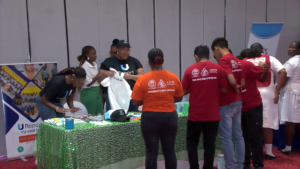 The National Emergency Management Organization hosted the country’s first-ever Disaster Risk Reduction Youth Forum today. Youths from across Belize District gathered at the Princess Hotel to provide their input on Belize’s disaster risk reduction policies. The forum also served as a platform to engage our youths in discussions on disaster preparedness, response, and climate resilience. The idea is that empowering the next generation with the knowledge and skills to build a safer, more resilient Belize is an investment in a more resilient future. News Five’s Paul Lopez reports.
The National Emergency Management Organization hosted the country’s first-ever Disaster Risk Reduction Youth Forum today. Youths from across Belize District gathered at the Princess Hotel to provide their input on Belize’s disaster risk reduction policies. The forum also served as a platform to engage our youths in discussions on disaster preparedness, response, and climate resilience. The idea is that empowering the next generation with the knowledge and skills to build a safer, more resilient Belize is an investment in a more resilient future. News Five’s Paul Lopez reports.
Paul Lopez, Reporting
Disaster is everyone’s business, because when a disaster hits it does not discriminate. The young and the old stand to be affected. Today, children are at the forefront providing key input on how Belize can improve its disaster risk reduction practices and policies.
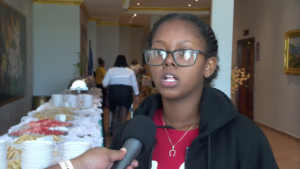
Brielle Goff
Brielle Goff, Student, E. P Yorke High School
“One of the things I see that children face is let us say their house gets flood out, like ok they have their textbooks in their and stuff like that, the resources they had are no longer there because it go damaged from the disaster. There is not always resources that they can get it back. So for example their uniform get damage and they only have one and they would have to wear that uniform again and again and then when they go to school, people bully them. So, I feel like that would be one of the things, they don’t have the supplies.”
Brielle Goff, a student at E.P. Yorke High School provided us with real examples of how children are impacted by disasters and the importance of reducing these vulnerabilities. She was able to voice her concerns at the National Emergency Management Organization’s first first-ever Disaster Risk Reduction Youth Forum.
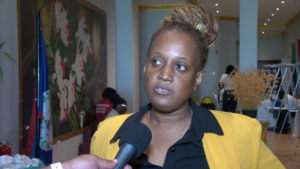
Fern Guitterez
Fern Guitterez, Deputy National Emergency Coordinator, NEMO
“The importance of having the youths building the framework for resiliency is a must as we continue to as a country conquer the issues related with climate change. So, the new approach to disaster risk management is to ensure that we have an all-inclusive approach to having a resilient nation. The goal is to ensure that young people understand that they have a role to play in disaster. Disaster is all of our business. Ensuring that they are actively involved in your local communities, ensuring that you are a part of your plans or programs, a part of your family hurricane plans, or family hazard plans.”
The University of Belize’s Environmental Club was also a participant in today’s discussion. Their interest is geared toward reducing the risks faced by our natural environment in a disaster event.

Samuel Esperanza
Samuel Esperanza, Vice President, UB Environmental Club
“Whenever we talk about disasters we have to take the environment into consideration. For example, when we have a hurricane, it is not just our human lives and our infrastructure that gets damaged, but you also have to think about the biodiversity in our areas. All of those are getting affected as well. A lot of times we have many species dying. Even if we take into consideration down south where all the forest fires, thousands of species of animals died and a lot of them are determinantal.”
UNICEF Belize’s participation in this event is also crucial. As Jenna Hoare, the Emergency Officer at UNICEF Belize, indicated, one billion children globally lives in disaster prone environments.
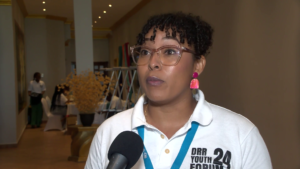
Jenna Hoare
Jenna Hoare, Emergency Officer, UNICEF Belize
“What we understand and what we see on the ground is youth and children are among the most vulnerable group in disaster situations. So, this is why it is so important that we start from early on in educating young people on key concepts when we talk about disaster risk reduction and management. They play a very pivotal role throughout our country. They have innovative ideas. I remember talking to one of the young persons earlier and they are talking about how we can use AI to advance early warning systems. So, young persons play a very critical role.”
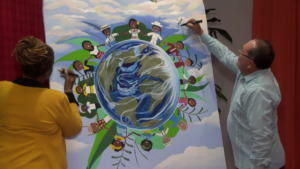 Brielle Goff
Brielle Goff
“We have something to say too you know, because we are in this generation. What they said, I was a teenager once, like what the adults say these days. I was a teenager once. Now we are the teenagers of this generation. The millennials could guh suh because this dah Gen Z time. So that is why we have something to say. We can relate to it. Like AI, my granny nuh know how to use AI. My mom, the other day I had to show she how to scan the network, you know weh I the she.”
At the government level, Minister of Disaster Risk Management, Andre Perez, says the most important policy at this time is building resilience.
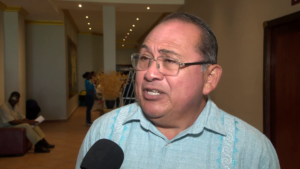
Andre Perez
Andre Perez, Minister of Disaster Risk Management
“Of course it is what we are saying here, building resilience. We have to learn; we have to cope with this. We have to better prepare ourselves for when these things come. That is what is important and that is what is being highlighted and carried to the students, to the youth.”
Reporting for News Five, I am Paul Lopez





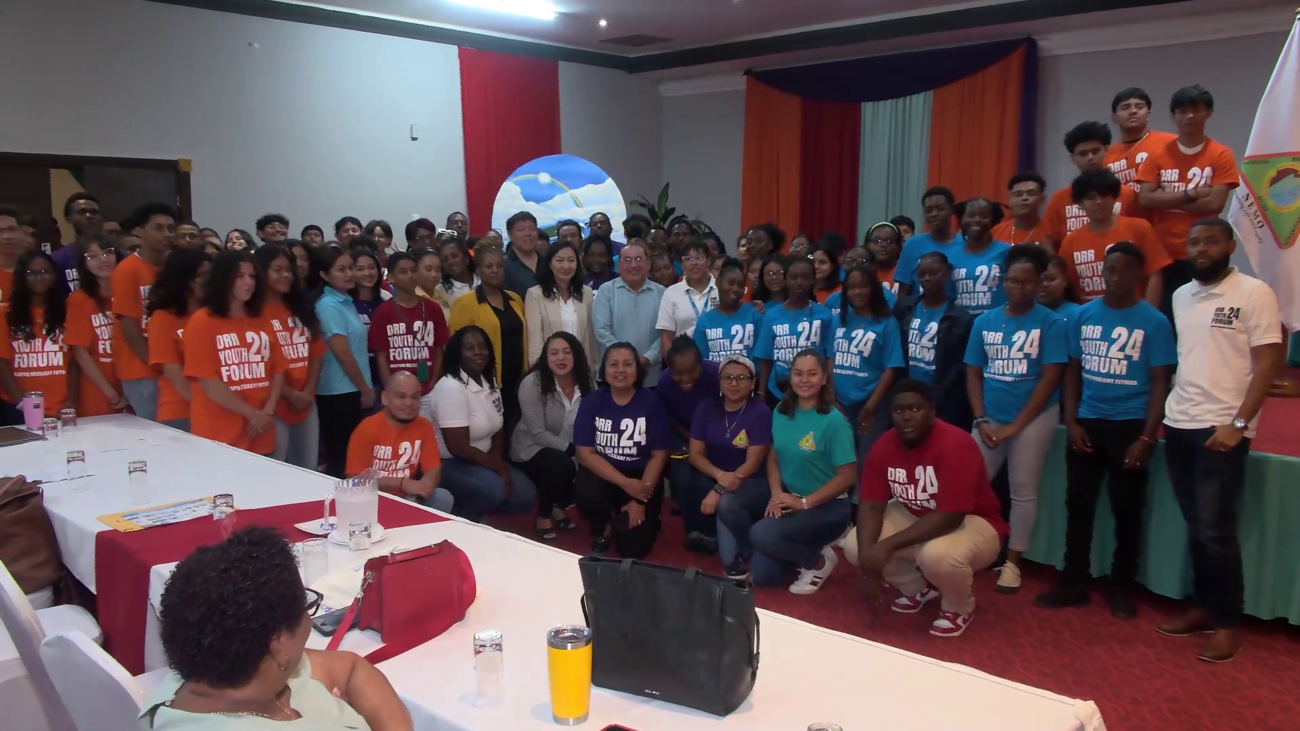
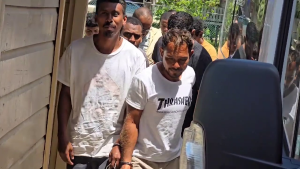
Facebook Comments